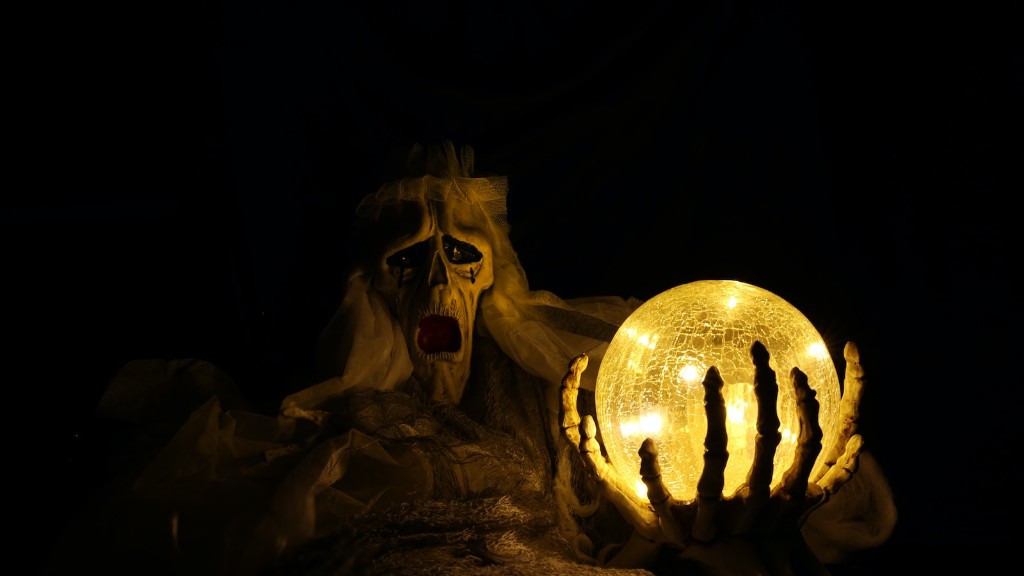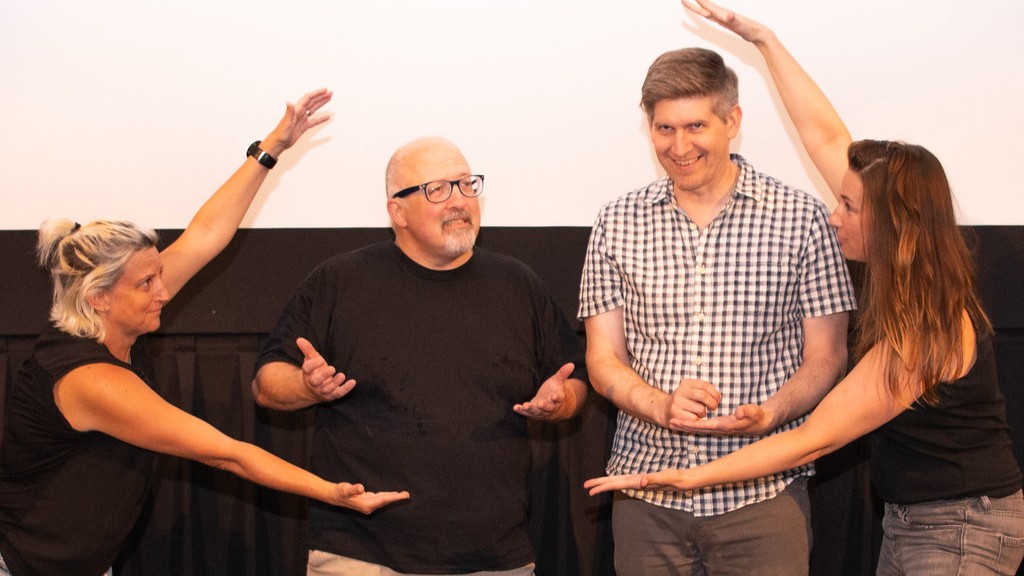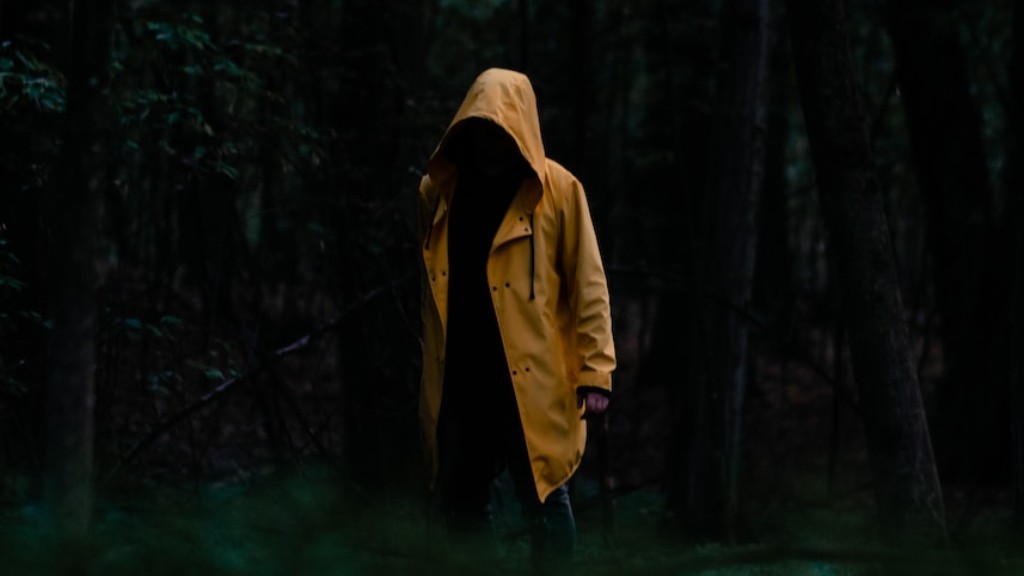Whether you like it or not, horror movies have an effect on your body. Your heart rate increases, your blood pressure rises, and your body releases cortisol, the stress hormone. In some cases, people have even died from watching horror movies.
Research has found that watching horror movies can have a number of physical effects on the body. These effects can include increased heart rate, increased blood pressure, and increased respiration. For some people, these effects can be quite intense and may even lead to a feeling of anxiety or fear.
What happens to your body when you watch a horror movie?
Physical reactions to terrifying images are known as the “fight or flight” response. This response is a natural reaction that helps us to protect ourselves from danger. Although horror movies do not directly impact the brain in a positive way, they can have a desensitization effect. This means that we become less sensitive to the things that scare us.
Binge-watching horror movies can have some negative consequences. It can increase the regularity of adrenaline in the body, worsening issues with sleep. Research also suggests that binge-watching can be an obsessive and compensatory behavior.
What hormones are released while watching horror movies
Epinephrine, also known as adrenaline, is a hormone that is released by the body in response to a perceived threat. This hormone signals a number of changes in the body that are designed to help you deal with the threat. For example, your lungs expand and the rate of respiration increases, so your body takes in more oxygen. Your heart beats faster, your pupils dilate, and your muscles begin to tense up. These changes can help you to better deal with the threat.
Many people enjoy watching horror movies as a way to experience fear in a controlled setting. However, for some people, watching horror movies can cause lasting trauma. This is especially true for children, who may have a harder time understanding that what they are seeing is not real. If you or someone you know experiences lasting trauma after watching a horror movie, it is important to seek professional help.
Do horror movies affect heart?
While it is unlikely that fear will cause a heart attack, in very rare cases it is possible. This phenomenon is called fear-induced stress cardiomyopathy, or broken heart syndrome.
When we watch scary movies, our brains release adrenaline, which prepares our bodies for stressful situations. Our sympathetic nervous system responds to the threat and throws us into the “fight or flight” response. This response increases our heart rate and blood pressure, and releases sugar into our bloodstream to give us energy. It also makes us more alert and increases our reflexes.
Are horror movies good for your brain?
It has been proven through multiple studies that watching scary scenes can have a positive effect on the brain. The release of adrenaline and neurotransmitters provides a boost in reaction time, alertness, and concentration levels. In addition, there are a multitude of other benefits that can be experienced from just one session of watching a scary movie.
Horror entertainment provides a unique experience that can trigger the fight-or-flight response. This response comes with a boost in adrenaline, endorphins, and dopamine, which can help the brain to process surroundings and conclude that the experience is not a genuine threat. This knowledge of personal safety is one reason horror fans habitually watch scary movies.
What personality type likes horror movies
The study found that low neuroticism and high sensation seeking were better predictors of horror movie preference. This means that people who are less sensitive and more adventurous are more likely to enjoy horror movies. If you’re looking for a horror movie to watch, these are the kinds of people you should ask for recommendations.
When we experience fear, our bodies go through a physical reaction as stress hormones like cortisol and adrenaline are released. This causes our blood pressure and heart rate to increase as our body prepares us to fight or flee from the perceived threat. While this reaction can be helpful in some situations, it can also be debilitating if we’re constantly in a state of fear. If you find yourself feeling fear regularly, it may be helpful to talk to a therapist or counselor who can help you manage your emotions and reactions.
Why is horror so addictive?
Horror is such an addictive genre because it is so exciting. The build-up to the scares and the impact of those scares are usually greater than any other genre. Horror also responds much more to human nature than anything else. We all have a desire to be scared, to push ourselves, and to sometimes have something we are told we can’t have. Horror satisfies all of those desires and more.
Horror movies are designed to elicit an arousal response from the viewer. The jump scares, the creepy imagery, and the things you can’t quite unsee are all there for the purpose of making your heart beat faster. This response is what makes horror movies so entertaining and addicting.
What does liking horror movies say about you
There are a number of personality and cognitive/affective traits that have been linked to horror preference and/or enjoyment. These include sensation seeking, empathy, theory of mind, need for affect, the dark tetrad, and personality. Other individual differences that may be relevant include age and sex.
While the sympathetic nervous system is your body’s way of preparing for a “fight or flight” response to stress, some people enjoy the feeling of stress and anxiety that comes from watching scary movies. For them, the thrill of the movie comes from the knowledge that they will eventually be safe and the stress will go away. However, for some people, this can become an addiction and they may start to seek out more and more intense experiences in order to get the same rush. This can be dangerous and should be avoided.
Can u get PTSD from horror movies?
There is no evidence that PTSD can be caused by exposure to media, television, movies, or pictures. PTSD symptoms include: Re-experiencing the trauma through intrusive distressing recollections of the event, including flashbacks and nightmares.
The “fight-or-flight” response is an automatic physiological reaction that occurs in response to a perceived harmful event, attack, or threat to survival. It is a survival mechanism that is triggered when we feel threatened or endangered. The “fight-or-flight” response is characterized by a rapid heart rate, increased blood pressure, increased respiration, and sweating. This response prepares the body to either fight or flee the perceived threat.
Are scary movies good for your mental health
According to Clasen, watching scary movies can help people with anxiety because it provides a controlled environment in which they can feel fear without being in actual danger. This can help them to feel more in control and better equipped to handle their anxiety.
According to a new study, the word ‘bloodcurdling’ is actually associated with an increase in the blood clotting protein called Factor VIII. So, if you’re a fan of horror movies, you may want to be aware that they could potentially have a tangible impact on your health!
Warp Up
The body is affected by watching horror movies in a number of ways. The most notable way is through the release of adrenaline, which can lead to an increased heart rate and blood pressure. This can lead to feelings of anxiety and fear, and in some cases, may even trigger a panic attack. Horror movies can also cause your body to produce more sweat, as your body tries to cool itself down in response to the fear.
The body is affected watching horror movies in many ways. The most common physical reaction is increased heart rate, which can lead to increased blood pressure and breathing rate. Other physical reactions may include increased adrenaline, goose bumps, and increased blood sugar. These physical reactions are exacerbated by thefact that horror movies are designed to be suspenseful and scary. The mental effects of horror movies can last long after the movie is over. Many people report feeling anxious, scared, and even traumatized by horror movies. In some cases, people may develop a phobia of the things they saw in the movie.





